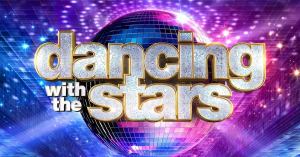Scarlett Johansson is taking legal action against OpenAI over a new voice for its Chat GPT product which sounds eerily similar to her own. The company demonstrated the voice assistant “Sky” for Chat GPT 4.0 during a promotional even last week, and viewers immediately noticed that it sounds like Johansson’s performance in the 2013 movie Her. Johansson released a lengthy statement on the matter indicating that she had been approached about the project but had not agreed to do it, making this a possible violation of her rights to her own likeness.
OpenAI held a live demonstration of its new virtual assistant Sky last week, boasting that it is powered by the company’s “artificial intelligence” technology and the latest version of its Chat GPT software. Commenters quickly compared it to Samantha, the fictional virtual assistant voiced by Johansson in Her, and that didn’t seem to be a mistake. OpenAI CEO Sam Altman has said that Her is his favorite movie, and shortly after this demo was over, he posted the word “her” with no context on X. OpenAI executives later denied any connection between Sky and the movie, but many people weren’t convinced – including Johansson’s lawyers.
Videos by PopCulture.com
Johansson’s legal team has sent two letters to OpenAI asking the company to explain how it developed the Sky voice, and the company seems to be acquiescing. In a post on X on Sunday night, the company announced that it would halt the release of Sky while it “addressed questions about how we chose the voices in Chat GPT.” Company spokespeople denied requests from NPR for further comment.
Johansson, on the other hand, elaborated in a lengthy statement provided to NPR reporters by her publicist. She wrote that Altman had actually approached her back in September, hoping to hire her to voice the Chat GPT virtual assistant directly. She wrote: “He told me that he felt by my voicing the system, I could bridge the gap between tech companies and creatives and help consumers to feel comfortable with the seismic shift concerning humans and AI. He said he felt that my voice would be comforting to people. After much consideration and for personal reasons, I declined the offer.”
That wasn’t quite the last Johansson heard about the project. She wrote: “Two days before the Chat GPT 4.0 demo was released, Mr. Altman contacted my agent, asking me to reconsider. Before we could connect, the system was out there.” She did not help create the voice or agree to its creation, and did not even have a chance to make a second denial before the product was unveiled.
Johansson said that after last week’s demo, friends and family began contacting her asking if she had taken the job. “I was shocked, angered and in disbelief that Mr. Altman would pursue a voice that sounded so eerily similar to mine that my closest friends and news outlets could not tell the difference,” she wrote.
“In a time when we are all grappling with deepfakes and the protection of our own likeness, our own work, our own identities, I believe these are questions that deserve absolute clarity. I look forward to resolution in the form of transparency and the passage of appropriate legislation to help ensure that individual rights are protected,” Johansson concluded.
So far, OpenAI has not publicly provided the transparency Johansson requested. The company has faced several other controversies since it began launching products, including more direct claims of copyright infringement. The Authors Guild is suing the company on behalf of authors including Jonathan Franzen and George R.R. Martin for using copyrighted work to “train” its “large language model.” However, just this month Business Insider reported that the company had destroyed the datasets believed to contain the copyrighted books used to create Chat GPT.
More generally, creators of “generative AI” programs have been criticized for mischaracterizing their software and overselling its capabilities. Many critics argue that Chat GPT does not meet the definition of “artificial intelligence,” and that using “AI” as a marketing term is dangerous and misleading. OpenAI is embroiled in multiple legal battles at the time of this writing, and it’s not clear where its spat with Johansson is heading.
Most Viewed
-

“Zone of Death” – As Kayce tries to embrace his new beginning, a Marshals op to stop a domestic terror attack lands him in a valley of buried Dutton family skeletons. While confronting his past, he must also learn to ingratiate himself with his new Marshals teammates, on MARSHALS, Sunday, March 8 (8:00-9:00 PM, ET/PT). Pictured: Luke Grimes as Kayce Dutton. Photo: Sonja Flemming/CBS ©2025 CBS Broadcasting, Inc. All Rights Reserved.







